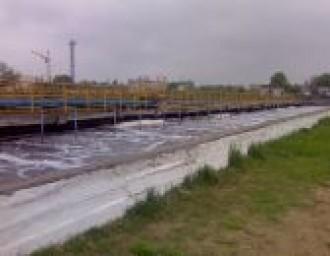NDEP, Sweden and Finland provide grants to support environmental investments in Belarus

NDEP together with the Governments of Sweden and Finland on March 26 extended grants totalling over EUR 20 million to five Belarusan water utilities.
These grants will support previously signed environmental investments by the European Bank for Reconstruction and Development (EBRD) and the Nordic Investment Bank (NIB).
The grants from Sweden made through Swedish International Development Cooperation Agency total EUR 13.6 million. Grodno Vodokanal will get an investment grant of EUR 3.6 million and Vitebsk one of EUR 2.7 million to improve their wastewater treatment facilities. The municipalities of Baranovichi and Slonim will each benefit from a EUR 1.4 million grant to install new biogas plants.
In addition SIDA is providing a grant of EUR 4.5 million for technical assistance to the three EBRD projects in Vitebsk, Baranovichi and Slonim with Finland contributing an additional EUR 0.8 million grant. These technical assistance grants will finance project implementation units and corporate development plans.
At the same time, the NDEP Support Fund is providing EUR 6 million in grants for Vitebsk, Grodno and Brest to support loans from the EBRD and NIB signed in December 2012. .
Total investments for these cities, including funding from other international financial institutions, will approach EUR 65 million and ensure that their wastewater is treated in full compliance with the EU and HELCOM standards. The inflow into the Baltic Sea of phosphorus, nitrogen and organic material will be substantially reduced once these projects in Belarus have been fully implemented.
Reducing the discharge of untreated effluent into the Baltic Sea is one of the major environmental priorities of the Northern Dimension Environmental Partnership which groups the EU and 12 governments (Belarus, Belgium, Canada, Denmark, Finland, France, Germany, The Netherlands, Norway, Russia, Sweden and the UK).
The grant funds will be disbursed directly to the relevant contractors who will be selected through an international tender.
Let us recall that the NDEP Support Fund is a multi-donor Fund administered by the EBRD which pools contributions from the European Union and the 12 donor governments. The partnership was set up in 2001 and its Support Fund currently stands at over EUR 342 million. Belarus joined the NDEP in 2010 with a EUR 1 million donation and a clear commitment to improve the environment through concrete municipal investments.
You can find NDEP’s Press Release here.
-
03.01
-
07.10
-
22.09
-
17.08
-
12.08
-
30.09










































